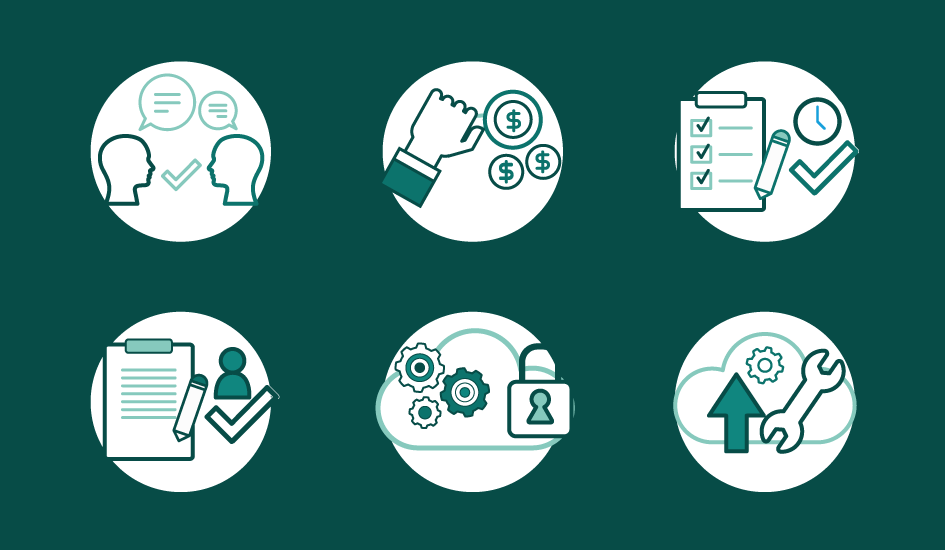ERP Software Introduction
-
February 12, 2020
- Posted by: Shashi Ranjan
- Category: ERP Software
No Comments

- February 12, 2020
- Posted by: Shashi Ranjan
- Category: ERP Software

ERP Software
Enterprise Resource Planning (ERP) software is a management solution that integrates applications to help improve the business operations, communication, and collaboration. An ERP software system streamlines the processes across the sales, order processing, finance, human resources, planning, production, inventory, procurement, and many more. ERP software can be used to automate and simplify the individual activities, such as accounting and procurement, project management, customer relationship management, risk management, compliance and supply chain operations.
Individual ERP applications can offer software as a service (SaaS), while a complete suite of ERP applications (Enterprise Resources Planning Applications) forms an ERP system that can be used to effectively communicate and bring together the business processes to enable a flow of data between the applications, typically through the common databases either on-site/on-premise or in the cloud.
ERPs connect every aspect of an enterprise. An ERP software system is simply for better performance and project management that helps in a plan, budget, predict and accurately report on an organization’s financial health and processes.
ERP systems typically cover all the aspects of business operations and commonly provide:
- An integrated system
- Common database
- Real-time operation
- Support for all applications/components
- Common user interface across application/components
- On-premise, cloud-hosted, or SaaS deployment
ERP software has the ability to collect and compare the metrics across departments and provide a number of different reports based on roles or specific user preferences. The data collected makes finding and reporting on data faster and gives a complete view of the business performance with complete insights on how resources are being spent.
Types of ERP Deployment
On-Premise ERP – On-Premise ERP software is implemented onsite and maintains in physical office space within an organization, hosted on the company’s own computers and the servers for full control, support, and ownership of the entire system once implemented.
Cloud-based ERP- Cloud-based ERP software is a web-based solution, known as SaaS (Software as a Service), where an organization accesses and stores data on any device with an internet connection, usually through the purchase of a subscription. Continual support, training, updates, and flexible customizations supported by the software providers.
“Hybrid” ERP software- “Hybrid” ERP software (Enterprise Resources Planning Software) is mainly referred to as the combined implementation of both on-premise ERP system solutions and the cloud-based ERP system solutions. The combination of hosting and deployment services vary by provider to provider. These models can provide ERP users the flexibility to migrate between the delivery models or integrate benefits not available existing implementation.
What Industries Can ERP Be Used For?
ERP software can be used in any industry to help a business become more and more efficient. It provides an effective communication tool that can manage information between the internal and the external departments, assist with daily activities to manage projects, track adherence to guidelines, and handle day-to-day problems that come with running a business.
Due to ERP roots in manufacturing, there are robust Industry-specific ERP systems solutions that cater to the various manufacturing industries. ERP software systems are very diverse and are the key parts of many industries, including but not limited to:
- Manufacturing
- Industrial Machinery and Components
- Construction and Home Improvement
- Electronics and Technology
- Automotive
- Aerospace and Defense
- Healthcare, Pharmaceutical, and Life Sciences
- Agribusiness, Farming, and Agriculture
- Food and Beverage
- Healthcare and Hospitality
- Clothing, Consumer Goods and Retail
Over time, ERP systems have grown to include the support for other applications and “ERP modules” that support the day-to-day business functions. In many ERP systems, these are the common functional areas are grouped into ERP modules, including but not limited to
- Financial Accounting
- Management Accounting
- Human Resources
- Manufacturing
- Order Processing
- Supply Chain Management
- Project Management
- Customer Relationship Management (CRM)
- Data Services
For ERP Implementation, Upgradation, Migration, And Support. Kindly contact us for consultation and demo.


